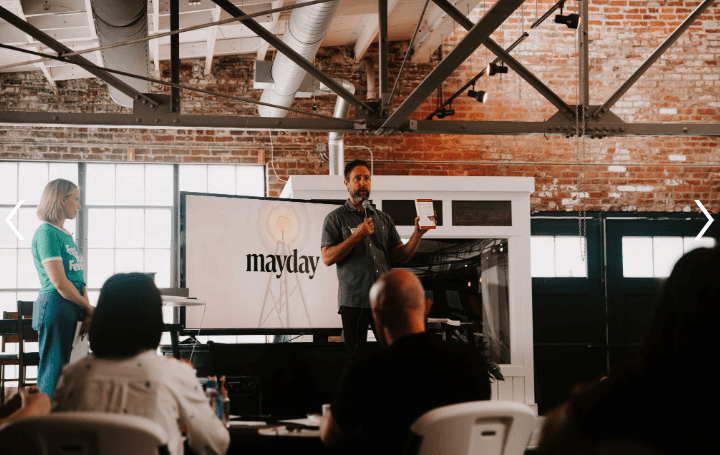Dec 16, 2024
The Game-Changer You Didn't Know You Had
The conversations we engage in — both with ourselves and others — are not mere exchanges of information but powerful acts of creation and transformation.
I recently had the opportunity to give a TedTalk. Part of the challenge of the exercise was to decide what I most want to say (or teach) in under 15 minutes.
I was coming off a near drowning experience a little over a year earlier, and fresh from a pilgrimage to Ireland on a David Whyte retreat with 40 others. David Whyte’s poetry and ideas resonate with me. The choice to write about listening to yourself connects to everything else I write about, and how I coach.
This was the talk I had to give.
The Conversational Nature of Reality
David Whyte posits that reality is inherently conversational, existing at the frontier between what we perceive as ‘self’ and ‘other.’ He suggests that this intersection is where true engagement with the world occurs, emphasizing that neither our desires nor the world’s demands unfold exactly as anticipated. Instead, reality emerges through the dynamic interplay between internal intentions and external circumstances.
“The only place where things are actually real is at this frontier between what you think is you and what you think is not you.”
This perspective highlights that our interactions are not static transmissions but evolving dialogues that shape our understanding and experiences. By recognizing the conversational nature of reality, we become active participants in creating our personal and collective worlds.
Self-Talk: The Internal Dialogue
The conversations we have with ourselves — our internal dialogues — are profoundly influential. They form the basis of our self-perception, beliefs, and actions.
Negative self-talk leads to self-doubt and anxiety, while positive affirmations foster confidence and resilience. And yet we don’t always recognize this reality, nor do we always act on it even when we do recognize it. By consciously directing our internal conversations, we can transform our mindset and behavior, leading to personal growth and change.
Courageous Conversations with Others
My near drowning experience reshaped my conversation with myself and the world.I invite you to listen with vulnerability and openness in the dialogues you have with yourself. By embracing and engaging in more courageous conversations, we can address underlying issues, build stronger relationships, and foster environments conducive to growth and self-understanding.
The Creative Power of Dialogue
Conversations are inherently creative acts. Through dialogue, we share ideas, negotiate meanings, and co-construct realities. This collaborative process leads to innovation, problem-solving, and the evolution of culture. In organizational settings, open communication fosters collaboration and drives progress.
Moreover, conversations can redefine relationships and social structures. Engaging in meaningful dialogue allows for the exchange of perspectives, leading to mutual understanding and the potential for collective action.
Practical Steps to Harness the Power of Language
Mindful Self-Talk: Regularly assess and adjust your internal dialogue to ensure it supports your well-being and goals.
Engage in Courageous Conversations: Approach difficult dialogues with honesty and vulnerability to foster deeper connections and resolve conflicts.
Active Listening: Prioritize truly understanding others’ perspectives to enhance communication and collaboration.
Purposeful Language Use: Be intentional with your words, recognizing their potential impact on personal and societal levels.
Promote Inclusive Dialogue: Encourage conversations that embrace diverse viewpoints to drive social change and innovation.
Our conversations are far more than simple information exchanges. They are dynamic, creative forces that shape our personal identities and societal landscapes. By engaging thoughtfully and courageously in dialogue with ourselves and others, we harness the transformative power of language to effect meaningful change.





